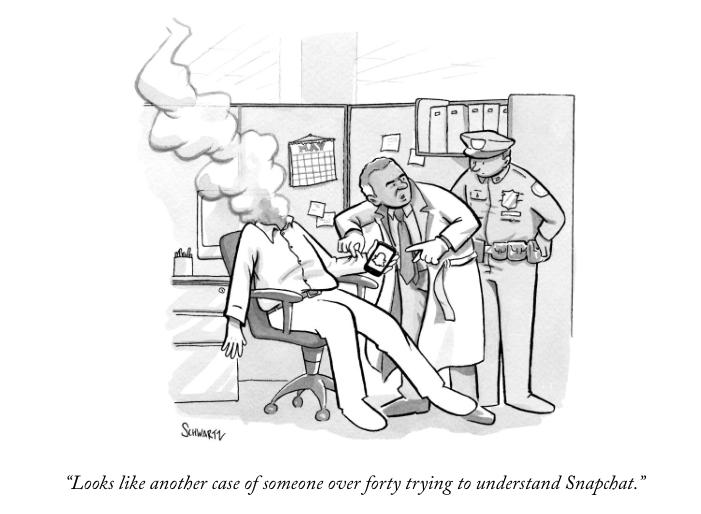
This is the second part in a series inspired by Christopher Lasch’s 1979 book, The Culture of Narcissism.
Narcissism is the self in love with itself; it’s believing the world revolves around one’s ego. While narcissists lack regard for the needs of others, they crave attention, admiration, and even envy to bolster their own self-esteem. And they will manipulate others for their own self-aggrandizement and personal satisfaction. Narcissists see others, and the world, as mirrors reflecting their own ego needs. Christopher Lasch, in his book The Culture of Narcissism, argued that “every society reproduces its culture…in the individual, in the form of personality” and for our culture the dominant condition has become narcissism.
In the intervening thirty-six years, American culture has only deepened the narcissistic trends identified by Lasch. The increase of narcissistic tendencies over the decades has been documented by researchers in psychology, who concluded that “a cross-temporal meta-analysis found that narcissism levels have risen over the generations” (in “Egos Inflating Over Time: A Cross-Temporal Meta-Analysis of the Narcissistic Personality Inventory,” Journal of Personality 76:4, August 2008).
Our sexuality deeply affects our sense of self, and the narcissistic curve of our culture has heightened our tendencies to approach sex selfishly. For the narcissist, sex is not an expression of love but a way to enhance his or her self. Others exist only for self-gratification. Lasch observed that the transfer of meaning from religion to therapy meant that the modern equivalent of salvation was now mental health and “mental health means the overthrow of inhibitions and the immediate gratification of every impulse.”
The immediate gratification of our sexual impulses is now facilitated by technology, through the proliferation of online dating sites and mobile apps, like Tinder, Hinge, and OKCupid. In her recent Vanity Fair article journalist Nancy Jo Sales chronicled the sexual cyber-adventurism of a group of well-heeled twenty-somethings—mostly, but not exclusively men—in an upscale bar in Manhattan’s financial district. Watching the swipe and hook-up culture on prominent display, she observes, “The comparison to online shopping seems apt to me. Dating apps are the free-market economy come to sex…the act of choosing consumer brands and sex partners has become interchangeable.”
Sales does not specifically describe this culture or the behavior of her subjects as narcissistic. She doesn’t need to; the casual comments she records read like textbook manifestations of narcissistic personality disorder: “I sort of play that I could be a boyfriend kind of guy,” one bar denizen describes his tactic to entice a potential sex partner, “but then they start wanting me to care more…and I just don’t.” Relationships are not the point; in fact they’re a definite hindrance: “‘I don’t want one,’ says Nick. ‘I don’t want to have to deal with all that—stuff.’ ‘You can’t be selfish in a relationship,’ Brian says. ‘It feels good just to do what I want.’”
Lasch recognized that, despite the appearance of power and self-possession, narcissistic behavior is an outward manifestation of inner need and weakness: “The narcissist feels consumed by his own appetites.” What little bit of self-awareness Sales’ male subjects seem to have reflects this truth: “It’s instant gratification,” says one young man, “and a validation of your own attractiveness by just, like, swiping your thumb on an app. You see some pretty girl and you swipe and it’s, like, oh, she thinks you’re attractive too, so it’s really addicting, and you just find yourself mindlessly doing it.”
Women also participate in this culture of casual-sex-facilitated-by-technology, but their bravado seems a bit affected and their vulnerability more visible. What women want, they say, is not a relationship–just common courtesy and regard. Noting the cavalier attitude on the opposite side of the hook-up equation, one young woman complains, “‘It’s not,’ she says, ‘that women don’t want to have sex. Who doesn’t want to have sex? But it feels bad when they’re like, ‘See ya.’” Says another, “‘Sometimes we just want to get it in’—have sex—‘too. We don’t want to marry you. You’re either polite or you’re…rude.” But Sales identifies a “wary” laugh after one comment about the lack of “relationships”: “They’re rare. You can have a fling…No one gets hurt—well, not on the surface.”
This pursuit by both sexes of “sexual pleasure as an end in itself, unmediated even by the conventional trappings of romance,” Lasch concluded decades ago, “…loses all reference to the future and brings no hope of permanent relationships.” And so, “both sexes cultivate a protective shallowness, a cynical detachment.” The contemporary effect is the driving of our cultural narcissism deeper into the individual psyche. We are becoming ever more lovers of ourselves rather than lovers of God—or anyone else.
Cartoons from: The New Yorker.

COMMENTS
3 responses to “The Culture of Narcissism, Part 2: Sex and the Self”
Leave a Reply
















Oh–this is SO sad. I wouldn’t want to be a ‘twenty-something’ today, if this is the prevalent feeling about relationships between men and women. It sure says a lot of things about the depravity of human nature, apart from God.
Patricia, I’m not sure if this is the “prevalent feeling” about relationships among millennials, though I think they have a lot of cultural baggage to deal with, baggage my generation packed for them. Yet, Sales story highlights a case of almost fashionable sexual narcissism that has wider influence. Lasch’s analysis would be that the Manhattanites are advanced cases of the condition of narcissism that we all suffer from. As “total depravity” means every part of all of us is depraved, but not necessarily are we all as bad as we could possibly be, “total narcissism” has bad and worse cases. More to come on that!
Narcissism people have other culture because they make themselves different from others and it will don’t match between the narcissism and other. This great article has described nicely overall about the culture of narcissism.